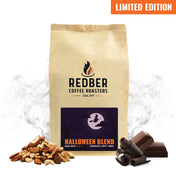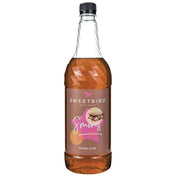If you are one to opt in for a milkier coffee: say a latte, cappuccino or a flat white, it is easy to forget one of the key ingredients to your drink - the milk! With so many milk and milk alternative options, it's great to know how each one will affect the final outcome of your coffee!
The taste, texture and consistency of coffee can be affected by Milk depending on the type that is used. The biggest influence is the fat content. Full fat milk gives you a sweet and creamy texture, which is good for less bitterness and acidity. Great for making a rich and creamy drink, but not so good if you want the fruity taste from the coffee. The lower the fat content in the milk, the less "thick" the coffee will be.

Another factor to consider is the Protein. The level of protein in Cow's Milk is an essential when it comes down to creating tiny bubbles during steaming/foaming. Which makes for great milk foam and latte art. This is not always found in non-dairy milk alternatives, but unlike oat, rice and nut-based alternatives, coconut milk has high enough protein levels to give consistent foaming, however it also brings a strong flavour to the coffee.
Then there are cow's milk alternatives, and there are so many alternatives available: soya milk, almond milk, oat milk, rice milk, coconut milk etc. And all vary in flavour! You may have a preference if you are already using one of these depending on what you prefer. It is known that there are negatives for each one which may not always apply to you, as it is always down to personal preference. Some say that coconut milk gives too much of a coconut taste to the coffee, and that almond or hazelnut milk is too nutty. There is also a very distinctive difference in sweetness between the many milk alternatives out there. Oat milk and Soy milk are quite popular for milk alternatives for coffee, but these can have their disadvantages when it comes to milk steaming and foaming, as it is more difficult to produce a silky texture of foamy bubbles that we all expect for our milky drink.
Milk is definitely the underdog when it comes to coffee consumption - it is easy to forget that the milk we are choosing can have such a big impact on taste!



